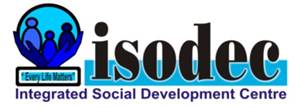The Institute for Fiscal Studies (IFS) has predicted that Ghana’s economic woes will deepen if it continues to adopt domestic financing of the national budget.
According to IFS, the government’s inability to access the Eurobond market has resulted in stiff competition with the private sector for loans to fund the budget, a development which is likely to lead to a shortage of investible funds for the private sector.
Speaking at a press briefing on a review of Ghana’s present fiscal and macroeconomic performance, the Acting Executive Director for IFS, Dr. Said Boakye, called for resilient measures to drive economic growth.
“The heightened domestic financing of the national budget that is currently taking place due to the country’s inability to access the Eurobond market owing to the death crisis is a cause for concern. The reason is that by this, the government is more aggressively competing with the domestic private sector for loanable funds,” he noted.
Dr. Boakye added: “This is likely to lead to a shortage of investible funds for the private sector and thus sustain a high interest rate, both of which have the effect of prolonging the current low economic growth and elevated unemployment rates.
“This calls for deliberate measures to tackle negative physical fundamentals like low revenue generation, excessive fiscal rigidities, corruption, and political-induced decisions. ”
Source: CNR














